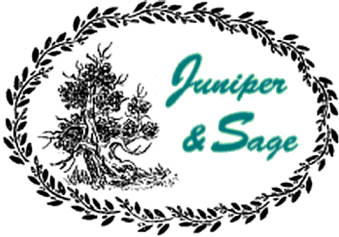Using herbs for healing your body is generally a different process than taking a commercial medication to combat a symptom. Whole herbs are a collection of food substances such as carbohydrates, sugars, vitamins and minerals, as well as various chemicals. They act to nourish your body and to build up its healing abilities and are not necessarily the quick fix we are accustomed to with chemical medicines. Herbs often take longer to work than conventional medicines, particularly with chronic problems and may need to be taken regularly for several months or more to have the expected effect. If some effect is not seen in a reasonable length of time, however, you should reevaluate what you are doing and make some changes such as: take a larger dosage or change herbs.
These are the most commonly available ways to buy herbs:
- BULK HERBS: These are in jars and are sold by the ounce (or by the pound by special order). These can be used for tea, infusions, soaked in alcohol to make tinctures or can be powdered to make capsules.
- TEAS: This is a water extract of the herb. Prepared mixes are available in tea bags or loose blends for use in tea pots or balls. Bulk herbs are made into tea for beverages in the proportion of one teaspoon of the herb to one cup of boiling water and allowed to steep for a few minutes. An infusion for medicinal purposes for most herbs can be increased in strength up to one ounce to one pint of water and allowed to steep for 20 minutes to two hours. Roots, seeds and barks may need to be boiled, and the resulting drink is called a decoction.
- EXTRACTS AND TINCTURES: This is an alcohol, vinegar or glycerine extract of the herb that is highly concentrated. If the preparation is in glycerine, it is callled a glycerite. Many herb books can give preparation instructions. Commercial tinctures or extracts are packaged in small bottles (one or two ounces) with droppers and have an average dosage of 20 to 60 drops. They are not usually labeled as a tincture, because that implies they are a medicine, which they are technically not (according to the FDA). So they are labeled instead with such things as extracts, concentrated drops or glycerites. They can be taken straight from the bottle and put under the tongue, or put into a small amount of water and drank. Tinctures remain potent longer than bulk herbs and will be good, as a general rule, for several years.
- CAPSULES: Herbs can be powdered and put into capsules or made into pills. To ensure high quality herbs, be sure to to know the company you buy from, or cap your own (which is an easy process). Drink at least a full glass of water with your capsules. This is not the most efficient way to take herbs for the young, old or digestion impaired.
- ESSENTIAL OILS: These are herbs in their most concentrated form; 20 or more pounds are needed to make a half of an ounce of essential oil. Because of their concentration they must be used with caution. In most applications, a drop or two is all that is required. These can be used for aromatherapy, a healing modality that uses them affecting physical and mental health. They are diluted in carrier oils and applied to the skin in the form of massage oils, cosmetics, sore muscle rubs and other preparations. In additions, essential oils can be used in a wide range of everyday uses: first aid, insect repellent, disinfectant, room fresheners and cooking (about one drop of oil for one teaspoon of dried herb).
- SALVES AND OILS: These are preparations that are made from infusing particular herbs in particular oils. These can be in liquid oil form for such things as massage oils, bruise oils or topical treatments. They are thickened to various degrees of solidity depending on whether it is a lotion, a cream or an ointment. The most common preparations are arnica ointment, healing salves, heating muscle balms and lip balms.
 Herbal Choices
Herbal Choices